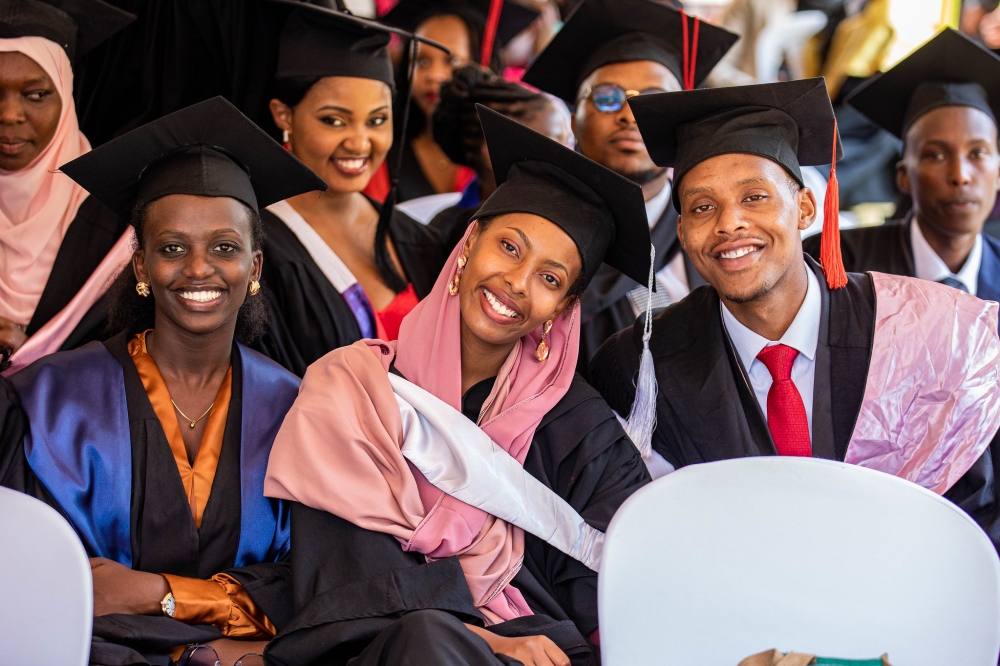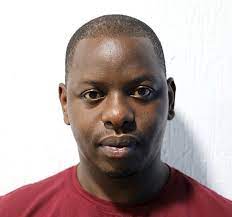

Academia should bring innovations off the shelves and commercialise them as part of a new "technology transfer strategy" being developed, industry players have said, following the University of Rwanda (UR)'s decision to reinstate its four-year undergraduate degree programmes.
Technology transfer is the process by which new inventions and innovations created in academic and institutional labs are transformed into products and commercialised.
ALSO READ: Asia’s top university establishes field station at University of Rwanda
UR has returned to the traditional four-year structure after a five-year trial with the three-year program, aiming to improve the quality of education and enhance technology transfer to the market.
In the 2017 academic year, social sciences and certain science programs were reduced to a three-year duration, instead of the traditional four years.
Industry players have called for improvements in technology transfer following the review of programs at the University of Rwanda.
The university is conducting a comprehensive review of its 158 academic programs, aiming to phase out those that no longer reflect the realities of the current labour market.
ALSO READ: University of Rwanda reforms: Why new college of veterinary medicine will be set up
Paulin Buregeya, Senior Advisor at Greentech Solutions, said there is a wealth of research at the university, but much of it is not being used to address community problems.
"Industries need new inventions, innovations, and technology, which can be produced by university researchers. However, we have not seen many coming from the University of Rwanda. It is the right time to start working closely with the University of Rwanda on the new technology transfer strategy being developed to solve community problems," he said.
He cited the waste management sector, which requires technology transfer across the country.
"We need innovations and technology for transporting waste from the source of generation. We also need technologies for waste treatment and disposal," he added.
ALSO READ: How Rwanda’s education sector will be transformed in next five years
Nathan Kanuma Taremwa, the Director for Research and Innovation at the College of Agriculture, Animal Science, and Veterinary Medicine (CAVM) at the University of Rwanda, said that a new technology transfer strategy is being developed to address such challenges.
He explained that technology transfer is essential for the University of Rwanda to thrive in today&039;s dynamic and competitive landscape.
"The new technology transfer strategy will also help in revenue generation, intellectual property protection, curriculum improvement to meet market needs, and fund mobilisation. The strategy will foster partnerships with industry," he noted.
ALSO READ: UR empowers innovators with AI, IoT, entrepreneurial skills to commercialise projects
He said the proposed UR Technology Transfer Strategy (TTS) aims to enable UR to transfer research and intellectual outputs to benefit society.
"Therefore, the Directorate of Research and Innovation at UR, the Centre for Innovation and Entrepreneurship, and the Directorate of Research and Innovation at the college level are expected to play vital roles in connecting research and innovation outputs with industry for commercialization."
Jochen Moninger, the Co-founder of Start-Up Africa, emphasised the need for academia-industry collaboration.
"Linking SMEs and start-ups with academia under the new technology transfer strategy is very important," he said.
Louis Sibomana, a science researcher, noted that the current Innovation and Technology (I&T) ecosystem at the University of Rwanda faces several challenges.
These include a lack of a well-established I&T infrastructure, insufficient use of Intellectual Property (IP) rights, a weak legal and regulatory framework for promoting private sector investment and commercialization, and low awareness of research and innovation policies.
He added that there is inadequate capacity to create and support innovations, a shortage of skills to meet industry demands, and insufficient financial resources to support research and explore emerging technologies.
The new Technology Transfer Strategy (TTS) outlines how UR&039;s new technologies will be generated, assessed, protected, marketed, and commercialized, as well as the responsibilities of various UR units in the technology transfer flow.
"Society expects scientific research and technology development to be aligned not only with the academic community and publications but also to address societal needs and contribute to inclusive development.
Universities are considered key actors in research and technology development that can meet societal expectations. In this regard, it is essential for the University of Rwanda to translate research results into practical and innovative solutions that can be applied to address societal challenges," he said.
Dedicated fund
The strategy will establish a dedicated fund to support technology development, prototyping, testing, and validation through annual competitive calls for proposals.
ALSO READ: UR official on why the university needs greater autonomy
It will also create mechanisms to support knowledge hubs and increase the number of incubators, technology spaces, science parks, technology transfer hubs, and laboratories.
These will allow students, researchers, innovators, and external partners to engage in technology development and meet investors and entrepreneurs for coaching and mentorship.
The university will also establish proof-of-concept funds to support academic spin-offs and start-ups to accelerate technology transfer and commercialization.
The new strategy aims to help researchers, innovators, and academics across various colleges, schools, departments, and research units to upgrade their skills and foster innovation, particularly through business start-ups.
It will also develop incentive and reward mechanisms that promote technology transfer activities, as well as provide support for researchers/innovators/inventors with IP-related registration and protection fees.
These may include competitive annual excellence awards, recognition, professional training, a percentage of revenue generated, academic promotions, and other rewards for staff and students involved in technology transfer, ensuring that incentives are transparent and equitable.
The University of Rwanda (UR) has undertaken a review of its academic programs to align them with institutional, national, and regional quality standards, so that they can be shared and implemented across East Africa.
ALSO READ: UR committed to leveraging data science to impact community
The East African Community (EAC) Vision 2050 recognizes science, technology, research, and innovation as key drivers for sustainable socio-economic development and EAC's industrialization and integration agenda.
In line with this, the East African Science and Technology Commission (EASTECO) has developed a technology transfer strategy to catalyze industrial innovation, strengthen technology and knowledge transfer, enhance knowledge creation, build effective partnerships, and improve technology management and protection.
The University of Rwanda (UR) is among the top 10 universities in Sub-Saharan Africa, according to the 2024 Times Higher Education rankings.


